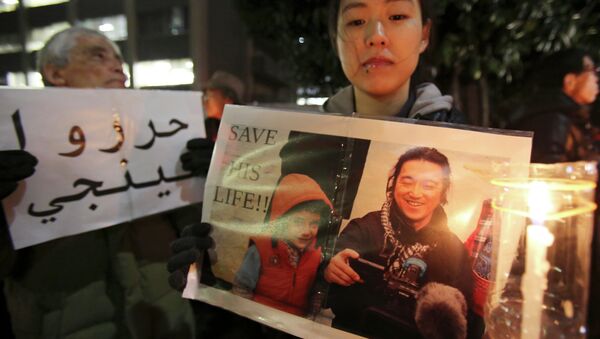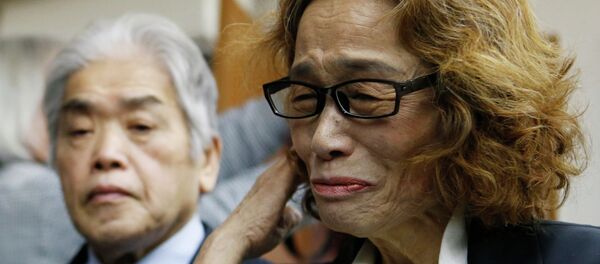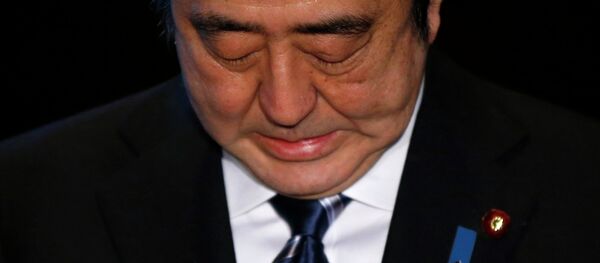On Saturday, IS released a video purporting the beheading of Japanese freelance journalist, Kenji Goto, following last week’s beheading of another national, Haruna Yukawa.
Abe, said to practice “proactive pacifism” by national media, vowed Japan "will never forgive" terrorists for the killings.
The incidents were met by strong public aversion in Japan, raising debate on whether IS hostilities might become a catalyst for Abe to reform the strictly defensive nature of the military, under Article 9 of the country’s constitution.
“No doubt the government will argue that this is all the more reason why Japan needs to rid of its constitutional ban on military and take on a fuller role in the ‘war on terror’,” political science professor at the Sophia University in Tokyo, Koichi Nakano, was quoted as saying by The Guardian on Sunday.
But according to Craig Martin, a professor at US Washburn University, Abe's government is in a rather difficult position, as military action would mean a lot of legal amendments, while deploying forces bypassing the laws would run into massive opposition.
"The vast majority of the Japanese are still reluctant to amend article 9," Martin said, as quoted by the International Business Times on Saturday.
In mid-2014, a resolution permitting Japan to take military action if threatened was passed, but the prime minister reiterated that Tokyo would not “change the principle that we cannot send troops overseas.”
A few days later, IS issued a video, threatening to kill Japanese nationals Kenji Goto and Haruna Yukawa unless Tokyo paid a $200-million ransom. After the 72-hour deadline expired, the group released footage showing what appeared to be the dead body of Yukawa and demanded Jordan to release Iraqi woman Sajida Rishawi, on death row for taking part in a suicide attack which she survived.
In the latest video purporting Goto’s beheading, an IS militant said the group still considered the humanitarian contribution as an act of war, adding “let the nightmare for Japan begin.”
IS, a Sunni fundamentalist group, began fighting the Syrian government in 2012, later expanding its operations to Iraq, and declaring a caliphate over the territories it controlled in both countries in mid-2014.
The extremists have beheaded several foreign journalists and aid workers, as well as other prisoners.





